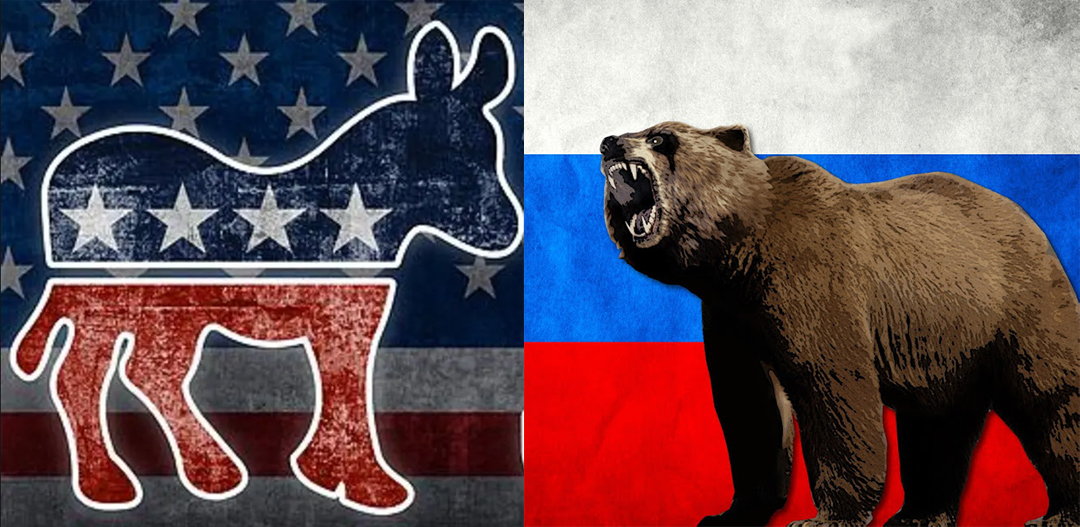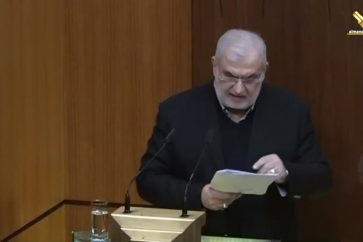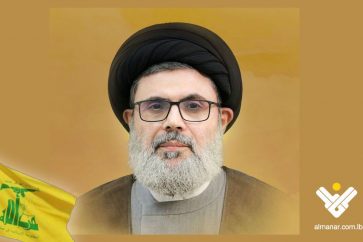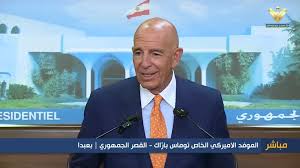When Russia started its military campaign in Ukraine on February 24, 2023, the world was on the verge of a major geopolitical change pertaining mainly the US unilateralism.
USA dragged the Russian bear into the Ukrainian quagmire in the context of a scheme devised to undermine Moscow’s rising political influence in Eastern Europe and the Middle East.
President Putin’s actions demand a firm response. That’s why we’re imposing full blocking sanctions on VEB and Russia’s military bank, cutting off Russia from western financing, imposing sanctions on elites, and more.
We will continue to escalate sanctions if Russia escalates.
— President Biden (@POTUS) February 23, 2022
Previously, NATO had challenged Russia by deploying game-changing missile systems, including Mark 41. The Foreign Policy had mentioned that the theoretical possibility of MK 41s being used on European soil for offensive purposes had become a subject of increasing heartburn for Russia as NATO and its missile defenses had crept deeper into Eastern Europe.
“It is a matter of national security for Russia because it regards NATO’s military presence in terms of the distance of a [precision-guided munition] strike into the Russian heartland from NATO’s easternmost border,” said Samuel Bendett, an advisor with the CNA think tank and a member of the organization’s Russia Studies Program. “This is how Russia views any NATO activity in Ukraine or in the former Soviet states.”
Thus, the Russian offensive in Ukraine came in the context of a strategic confrontation with the US-NATO schemes in Eastern Europe, knowing that the outcomes of the war would identify the world’s balance of power in the aftermath.

Although the Russian advance in the Ukrainian battle has been seen by military observers as slow, the map below, published by BBC shows that the offensive has achieved strategic targets in eastern Ukraine.

What is more important than the military progress has been the prevention of Ukraine from being the West’s way into Moscow through deploying ballistic missiles and other weapons which can break the strategic balance in Eastern Europe and the whole world.
This article will not tackle the horrible effects of the war in Ukraine on the economic situation in Europe which is paying the heaviest price for the US war on the augmenting role of the Eastern powers, including Russia, China and Iran.
In politics, when certain powers lose influence others would be there in control of the scene. The fragile view of the US president visiting Kiev to meet with the leader of the adventure Volodymyr Zelensky who has engaged in fruitless attempts to involve the West in the Ukrainian battle reflects the new balance of power in the world.
Simply, the Western coalition is incapable of defeating its Eastern arch foe, Russia which could use several cards in the ongoing confrontation, including the energy sources.
The Guardian wrote five months ago that the relations between Russia and Saudi Arabia were at a high point, adding that the Saudi crown prince chose to reinforce his toes with Russian President Vladimir Putin despite Western campaign on the Soviet state.

What is remarkable about the Saudi-Russian ties is that Riyadh is finding a new geopolitical arena in which it can find the necessary alternative in order to occupy a more powerful position in its ties with the Western capitals.
Thus, Russia would have expanded its ties and deprived the West from the complete control of the oil-rich kingdom.
China has also contributed to the major geopolitical alteration taking place in the world, bolstering ties with Iran, Russia, and Saudi and brokering an agreement between Iran and Saudi.
Iranian President, Ebrahim Raisi described an official visit he paid to China in February as fruitful and successful, expressing hope that all will see the growth of cooperation in various fields between the two countries.

After several days of intense discussions in Beijing, Iran and Saudi Arabia agreed this month to reopen their embassies and diplomatic missions within a maximum of two months, signaling a significant breakthrough in their diplomatic relationship. China played a key role in brokering the deal between the two Muslim countries.

Newly Xi Jinping is visiting Moscow to reinforce support to the Russian counterpart Vladimir Putin in his confrontation with the West.
Beijing and Moscow are friendly neighbors and reliable partners, President Xi Jinping said on Monday upon his arrival in the Russian capital on a state visit.

Beijing and Moscow are friendly neighbors and reliable partners, Chinese President Xi Jinping said on Monday upon his arrival in the Russian capital on a state visit.
“It gives me great pleasure to once again set foot on the soil of Russia, our friendly neighbor, and pay a state visit to the Russian Federation at the invitation of President Vladimir Putin,” the Chinese leader said.
“On behalf of the Chinese government and people, I wish to extend warm greetings and best wishes to the Russian government and people,” he added. “China and Russia are friendly neighbors and reliable partners connected by shared mountains and rivers,” Xi Jinping stressed.
“Ten years ago, I paid my first state visit to Russia as Chinese President, and together with President Putin, opened a new chapter in the all-round development of China-Russia relations,” the president said.
“Over the past decade, our two countries have consolidated and grown the bilateral relationship on the basis of no-alliance, no-confrontation and not targeting any third party, and set a fine example for developing a new model of major-country relations featuring mutual respect, peaceful coexistence and win-win cooperation,” he stressed.
China and Russia have “forged a longstanding friendship” between their peoples,” Xi stressed. “The growth of China-Russia relations has not only brought tangible benefits to the people of our two countries, but also made important contributions to the development and progress of the world,” he said.
In brief, the US unilateral policies have failed to continue dominating the world politics. USA can no longer protect ‘Israel’ from the destructive strikes of the axis of resistance in the Middle East.
In this regard, the Zionist media noted that the Chinese role in the agreement indicates that the US influence in the Middle East has diminished.
All foes of US have contributed to fall of the White House imperialism; however, the Russian bear’s slow progress in Ukraine led to a speedy decline of unilateralism in the whole world.
Source: Al-Manar English Website







